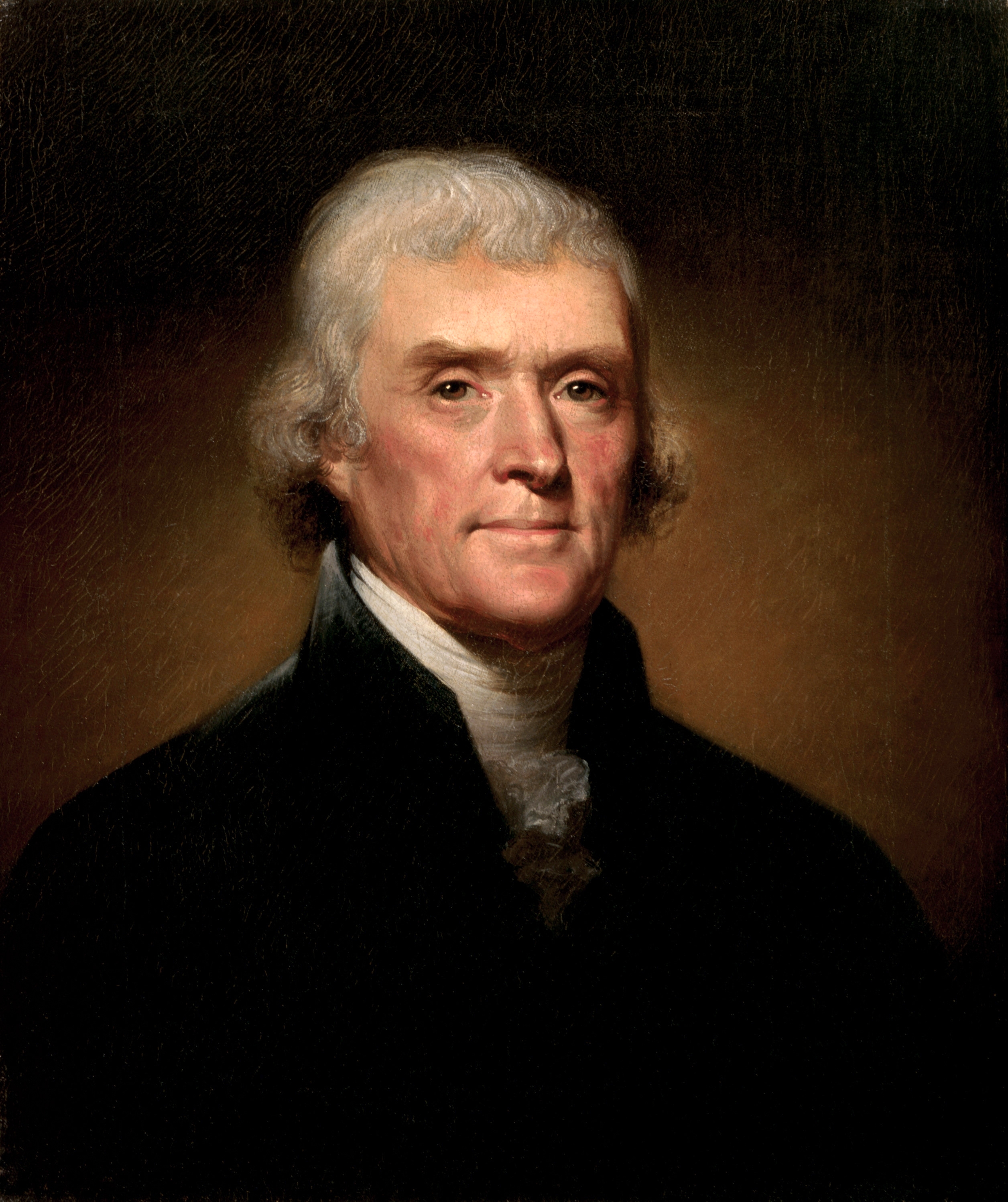It happened today - June 18, 2015
 On June 18, 1812, the imaginatively named War of 1812 began. I have commented elsewhere on the surprisingly positive strategic impact of this war, begun under such unpromising circumstances for no good reason. But today I’d like to let off a little steam on the subject of Thomas Jefferson.
On June 18, 1812, the imaginatively named War of 1812 began. I have commented elsewhere on the surprisingly positive strategic impact of this war, begun under such unpromising circumstances for no good reason. But today I’d like to let off a little steam on the subject of Thomas Jefferson.
I’m no great fan of his. Highly intelligent, capable of writing wise and moving words, he was a hypocrite and a monster on race relations and frequently frivolously irresponsible in public affairs. Including blundering into war with the British in 1812 because of a ludicrous sympathy for Napoleon and the legacy of the French Revolution and an irrational hatred of Britain. Jefferson was of course out of office by the time the war started under James Madison, but it was Jefferson who set the course that led to conflict.
To be sure, many Americans were leery of the nation that, under George III, had tried to take away their freedom in the 1760s and 1770s. Many thought the War of 1812 represented a second effort toward the same goal under the same long-lived, fairly wretched monarch. Popular American mistrust of Britain would linger into the 1930s, when isolationists would mock the “Brutish Empire” as it haltingly tried to oppose Hitler. But Jefferson’s actions were far more irresponsible.
John Adams, the man he narrowly defeated for the presidency in 1800, was accused by Jefferson’s partisans of being unreasonably favourable to Britain and irrationally hostile to France. And clearly Adams saw through the French Revolution’s high-sounding rhetoric in a way Jefferson never did. But when Adams was given a prime opportunity to bring the U.S. into Britain’s war against France by the “XYZ Affair” of 1798 he turned it down, at enormous political cost, because he thought it neither wise nor just.
Jefferson the pacifist, by contrast, drifted into war with Britain on behalf of Napoleon without bothering to arm his nation, exhibiting the classic liberal tendency to “combine the unready hand with the unbridled tongue” as Teddy Roosevelt would later put it. And thanks to Britain’s common sense in managing the conflict his party never paid the price Adams’ had for his statesmanship.
Historians have generally taken Jefferson’s side against Adams, minimizing his racial sins, buying the Jeffersonians’ line about Adams being a crypto-monarchist friend of plutocrats and Jefferson the champion of the common man whose “Revolution of 1800” saved America from elitist rule threatening to democracy.
While we’re on the subject of democracy and the common man, surely it’s worth noting that Jefferson would have lost the 1800 election to Adams had the white voters of slave states carried excessive weight in presidential contests due to the obnoxious constitutional rule of counting slaves as 3/5 of a person for purposes of representation in Congress and the Electoral College. Had Adams won, it is highly unlikely the War of 1812 would have been fought. And while that war turned out remarkably well geopolitically, there was no reason to suppose it would. It was a stupid conflict and one that wiser men than Jefferson would rightly have avoided.
It has always bothered me that Adams has never received proper credit for avoiding a war his partisan instincts favoured on behalf of British liberty against French revolutionary mania, and Jefferson has never received suitable blame for blundering into a war his partisan instincts favoured on behalf of tyranny.